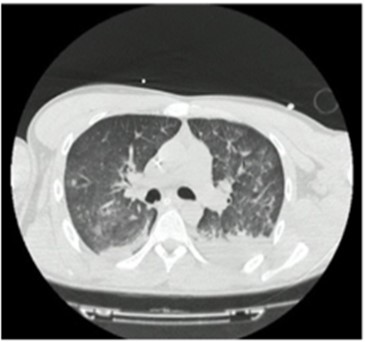Abstract
Introduction
Coffee is a drink that is associated with metabolic changes, including changes in the lipid profile. On the other hand, lipid alterations, such as increased LDL cholesterol or decreased HDL cholesterol, are associated with adverse cardiovascular outcomes. Taking into account the frequency of consumption of this drink and the recent evidence regarding its impact on cardiovascular and deaths, it is necessary to review the recent evidence to understand how coffee consumption modifies the lipid profile.
Methods and analysis
We will search Embase, Pubmed, BVS and Cochrane from inception to March 2021 with language restriction to French, Spanish and English. We will include meta-analyses and systematic reviews that evaluate the impact of coffee consumption on the lipid profile in adults. Methodological quality of each study will be evaluated using the Assessment of Multiple Systematic Reviews 2 (Amstar2) tool. The heterogeneity of the results reported using the I2 estimator will be taken into account. A sensitivity analysis of the results will be carried out by subgroups according to the quality of the included studies.
Karr S. Epidemiology and management of hyperlipidemia. Am J Manag Care. 2017;23(9):S139-48.
Toori MA, Kiani F, Sayehmiri F, Sayehmiri K, Mohsenzadeh Y, Ostovar R, et al. Prevalence of hypercholesterolemia, high LDL, and low HDL in Iran: a systematic review and meta-analysis. Iran J Med Sci. 2018;43(5):449-65.
Carlström M, Larsson SC. Coffee consumption and reduced risk of developing type 2 diabetes: A systematic review with meta-analysis. Nutr Rev. 2018;76(6):395-417.
Farias-Pereira R, Park CS, Park Y. Mechanisms of action of coffee bioactive components on lipid metabolism. Food Sci Biotechnol. 2019;28(5):1287-96. https://doi.org/10.1007/s10068-019-00662-0
Sarriá B, Martínez-López S, Sierra-Cinos JL, García-Diz L, Mateos R, Bravo-Clemente L. Regularly consuming a green/roasted coffee blend reduces the risk of metabolic syndrome. Eur J Nutr. 2018;57(1):269-78.
Alba Talero LH, Peñaloza MJ, Gutiérrez V, Castillo JS. Efecto del consumo habitual de café en la salud cardiovascular de la población adulta: protocolo de una revisión de revisiones sistemáticas de la literatura. Univ Méd. 2019;60(2):1-6.
Cai L, Ma D, Zhang Y, Liu Z, Wang P. The effect of coffee consumption on serum lipids: A meta-analysis of randomized controlled trials. Eur J Clin Nutr. 2012;66(8):872-7.
Martínez-López S, Sarriá B, Mateos R, Bravo-Clemente L. Moderate consumption of a soluble green/roasted coffee rich in caffeoylquinic acids reduces cardiovascular risk markers: results from a randomized, cross-over, controlled trial in healthy and hypercholesterolemic subjects. Eur J Nutr. 2019;58(2):865-78.
Mattioli AV. Effects of caffeine and coffee consumption on cardiovascular disease and risk factors. Vol. 3, Future Cardiology. London: Future Medicine; 2007. p. 203-12.
Cheung RJ, Gupta EK, Ito MK. Acute coffee ingestion does not affect LDL cholesterol level. Ann Pharmacother. 2005;39(7-8):1209-13.
Al-Mssallem MQ. The regular consumption of coffee and development of type 2 diabetes mellitus. J Public Heal. 2020;28(2):115-22.
Rebello SA, Van Dam RM. Coffee consumption and cardiovascular health: Getting to the heart of the matter topical collection on ischemic heart disease. Curr Cardiol Rep. 2013 Oct;15(10):1-12.
Stutz B, Ahola AJ, Harjutsalo V, Forsblom C, Groop PH. Association between habitual coffee consumption and metabolic syndrome in type 1 diabetes. Nutr Metab Cardiovasc Dis. 2018;28(5):470-6. https://doi.org/10.1016/j.numecd.2018.01.011
Moher D, Shamseer L, Clarke M, Ghersi D, Liberati A, Petticrew M, et al. Preferred reporting items for systematic review and meta-analysis protocols (PRISMA-P) 2015 statement. 2015;349. https://doi.org/10.1136/bmj.g7647
Shojania K, Bero LA. Taking advantage of the explosion of systematic reviews: an efficient MEDLINE search strategy. Eff Clin Pract. 2001 Jul-Aug;4(4):157-62.
Salvador-Oliván JA, Marco-Cuenca G, Arquero-Avilés R. Errors in search strategies used in systematic reviews and their effects on information retrieval. J Med Libr Assoc. 2019 Apr;107(2):210-221. doi: 10.5195/jmla.2019.567
Ouzzani M, Hammady H, Fedorowicz Z, Elmagarmid A. Rayyan-a web and mobile app for systematic reviews. Syst Rev. 2016;5(1):1-10. https://doi.org/10.1186/s13643-016-0384-4
Shea BJ, Grimshaw JM, Wells GA, Boers M, Andersson N, Hamel C, et al. Development of AMSTAR: a measurement tool to assess the methodological quality of systematic reviews. BMC Med Res Methodol. 2007;7:1-7.

This work is licensed under a Creative Commons Attribution 4.0 International License.
Copyright (c) 2022 Nora Badoui Rodríguez, Diana Carolina Rico, Juan Camilo Marin



